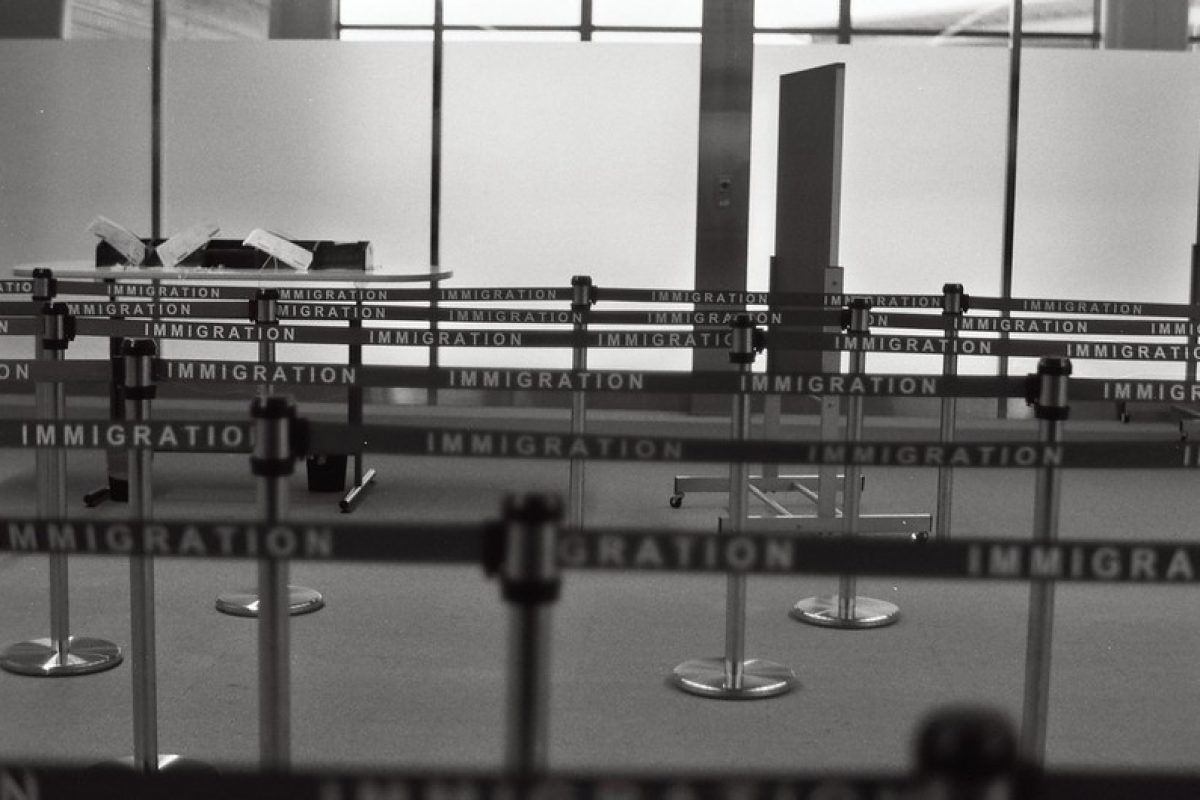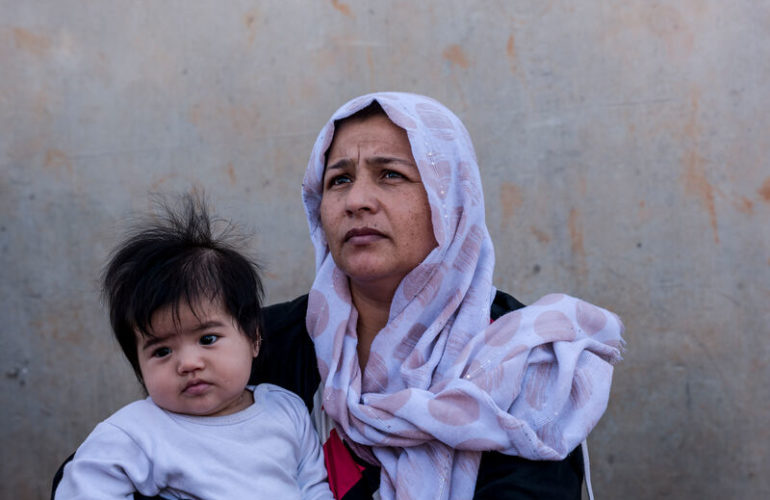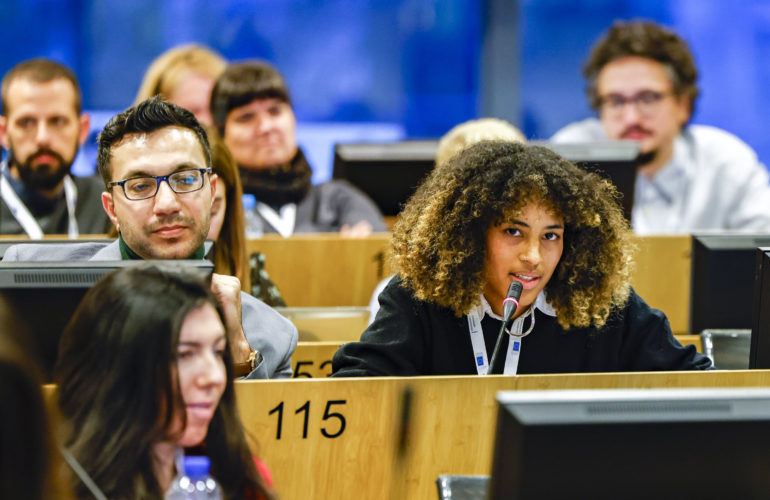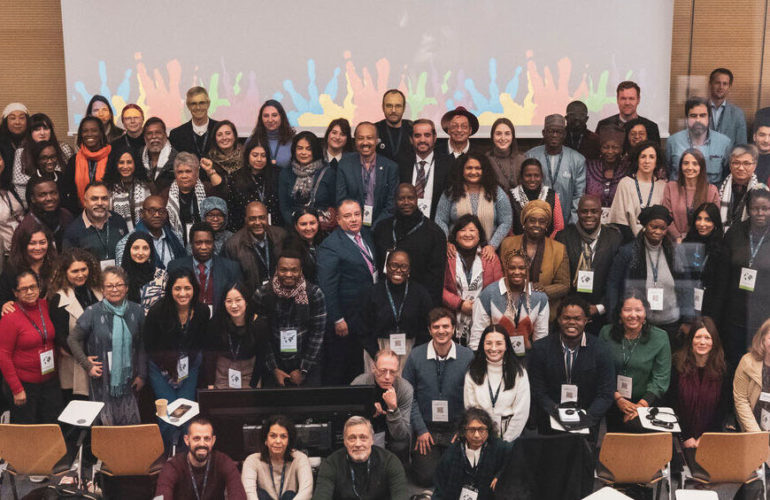Now It’s Time for Unity, Not Division, Say U.S. Bishops

The COVID-19 pandemic “is merciless in its preying upon human life; it knows no borders or nationality. Pope Francis teaches us that to live through these times, we need to employ and embody the ‘creativity of love’.” With these words, three U.S. Catholic bishops responded to an executive order halting immigration to the country.
On 22 April, the U.S. President issued an executive order to halt immigration into the country for 60 days, with the alleged purpose of protecting U.S. citizens and ensuring that they are the first in line for jobs when the economy re-opens.
In an immediate response to this development, Archbishop José H. Gomez of Los Angeles, President of the U.S. Conference of Catholic Bishops (USCCB), Bishop Mario E. Dorsonville, Auxiliary Bishop of Washington and Chairman of the USCCB’s Committee on Migration, and Bishop Jaime Soto of Sacramento and Chair of the Board of Directors of the Catholic Legal Immigration Network, Inc. issued a call for unity and humanity.
“We are extremely concerned about how the proclamation will impact immigrant families,” reads the bishops’ response. “The proclamation prevents certain immigrant family members from reuniting with their loved ones living in the United States. Additionally, it bars religious workers seeking to come to the United States as lawful permanent residents from supporting the work of our Church, as well as many other religions, at this time.”
The U.S. is being heavily affected by the COVID-19 pandemic. While welcoming efforts to ensure that all Americans are recognized for the social and econimic value of their work, the bishops challenged the stereotype that immigrants take jobs away from them. “Immigrants and citizens together are partners in reviving the nation’s economy,” they stated.
The decision to halt immigration “threatens instead to fuel polarization and animosity” precisely at a time when “the global crisis caused by COVID-19 demands unity and the creativity of love, not more division and the indifference of a throw-away mentality,” argue the bishops.
Despite the fact that most visa processing facilities are currently closed, according to estimates by the Washington-based Migration Policy Institute, up to 20,000 people per month could be blocked from submitting an application for residence in the U.S. in order to be reunited with family members who already have permanent residence status there, or to provide important pastoral and other services in the country.
ICMC Secretary General Msgr. Robert J. Vitillo noted the uncertainty and anxiety of people worldwide to the new and frightening public health challenge of COVID-19. “I receive many messages from refugees and migrants whose hearts are aching to be welcomed to a host country where they can contribute with hard work and strong values,” he said.
Msgr. Vitillo highlighted that many of the “hero” health care workers responding to COVID-19 in the U.S. and other countries are themselves immigrants and refugees. And he recalled the words of Pope Francis during his 17 March special prayer service and blessing in response to the pandemic: “We are in the same boat, all of us fragile and disoriented, but at the same time important and needed, all of us called to row together.”
Protecting Migrant Farmworkers during the Pandemic
On 28 April, U.S. bishops tasked with the pastoral care of migrant populations issued a statement in support of migrant farmworkers during the COVID-19 pandemic.
“We would like to highlight the reality of migrant farmworker communities and honor their heroic role amidst the many challenges they face during this crisis,” reads the statement.
According to the estimates of the U.S. Department of Labor, around half of the over one million migrant farmworkers in the country are undocumented. This makes them particularly vulnerable under the current situation.
“Many migrant farmworkers lack access to health insurance, medical treatment, and sick or paid leave options; farmworkers’ housing conditions are often overcrowded with little opportunity for social distancing, including in transportation to and from work, and personal protective equipment is not always available,” the statement reads.
Being undocumented also means “the fear of immigration enforcement action which may deter someone from seeking necessary medical attention or speaking up about forms of abuse at home or the workplace that occur during this time.”
The statement includes recommendations on farmworkers’ healthcare, housing, transportation, and work safety, as well as wages and social benefits.
The statement was jointly issued by Archbishop Nelson J. Pérez of Philadelphia and chairman of the U.S. Conference of Catholic Bishops’ Committee on Cultural Diversity in the Church, Bishop Joseph J. Tyson of Yakima, chairman of the Subcommittee on Pastoral Care of Migrants, Refugees and Travelers (PCMRT), Bishop Oscar Cantú of San Jose and PCMRT’s episcopal liaison for migrant farmworker ministry, and Bishop Mario E. Dorsonville, auxiliary bishop of Washington and chairman of the Committee on Migration.
The bishops urged political leaders and policy-makers “to consider the realities and emerging, pressing needs of farmworker communities across the country during this time of the coronavirus outbreak. To defeat the virus, no one must be left out.”


